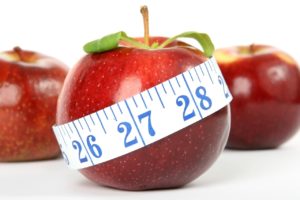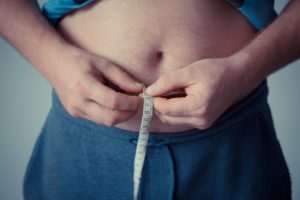Protein is one of the fundamental aspects of weight loss programs. Its intake boosts the body’s metabolic processes, suppresses appetite and manipulates other weight reduction hormones in the body to achieve specific weight target of the individual in question. In addition to cutting down on weight, they also help reduce belly fat primarily through the increased body metabolism. Proteins, therefore, play important roles in the body when it comes to reducing weight. Some of these roles are indirect while others are direct but nevertheless help the body reduce mass through the following means.
 1. Regulates weight hormones
1. Regulates weight hormones
The hypothalamus section of the brain regulates the body weight by keeping in check different types of appetite inhibiting hormones particularly GLP-1, peptide YY as well as cholecystokinin. High protein intake also reduces the level of ghrelin, a hunger hormone. Substitution of fat intake in the body with proteins has the counter effect of reducing hunger hormone, which consequently leads to a reduction in hunger. With an inhibited appetite, calorie intake will also be lower hence a reduction in weight.
 2. It burns calories
2. It burns calories
After a meal, calories are used to digest the food ingested in the body in a process technically referred to as Thermic Effect of Food (TEF). In comparison to other food sources, protein based food have the relatively higher thermic effect of food that carbohydrates and fat. This also means that majority of protein calories are burned during the digestion and metabolism of protein thus helps in reducing body weight. Protein intake can make you burn more calories in a single day as compared to other food sources. Research has shown that up to 100 calories can be burned out in a day and that includes during sleep.
 3. Suppresses appetite
3. Suppresses appetite
Protein intake reduces the amount of calories taken in the body in an unconscious way. This is to say that in eating protein rich diet, you do not need to constantly keep track of your calorie intake to regulate body weight because the protein rich diet automatically does that. Protein regulates calories by burning them out as already noted thus helps reduce unnecessary cravings. This can be useful to emotional eaters who cannot control their appetite for food particularly in response to an emotional situation. Due to the satiating nature of high protein diets, it makes it easier to control appetite, which is a relative advantage to low protein diets.
 4. It prevents muscle break down or loss
4. It prevents muscle break down or loss
In a weight loss program, focus or emphasis is placed on losing fat, both the fat under the skin and that around body organs, than on just general mass reduction because losing weight does not equate to fat reduction in a proportional manner. However, in the process of trying to cut down weight, muscle tissues are also worn out and consequently lost in the process. Understandably enough, this is a condition that many would like to avoid. A protein rich diet helps you prevent loss of muscle tissues in the process of losing weight. In addition to that, it can also maintain high metabolic rates if combined with intensive or rigorous training exercises that focus on building strength.
 5. It leads to reduction of fat
5. It leads to reduction of fat
With a high-calorie reduction and increased metabolic activity, the body burns down more fat reserves and that includes both visceral and subcutaneous fat. The body cannot burn fat without assistance from proteins or carbohydrates. About proteins, more intake of it increases the rate at which fat is burned while simultaneously preventing muscle loss during calorie burning.
Optimal protein intake and diet
With the benefits in mind, a number of proteins intake determines the extent of weight reduction but first it is important to know the exact sources of protein. Protein-rich diets include all types of meat sources such as turkey, chicken, beef, and pork. Fish such as sardines, Salmons, and trout also form excellent sources, and so do eggs and dairy products such as cheese, milk and yogurt. Plant sources include kidney beans, lentils, and chickpeas. When it comes to losing weight, aim for approximately 30% of the calories from protein rich diet for optimum benefits.
Protein intake is the simplest way to reduce weight whereby to lose, you have to add. You simply need to embrace a protein rich diet to benefit regarding weight reduction. Those on vegetarian diets can also benefit from protein intake by consuming proteins from plant sources. If it is any consolation, most protein rich foods are tasty and tantalizing thus irresistible.
Be the first to comment on "Role of Protein in Weight Loss Diets"